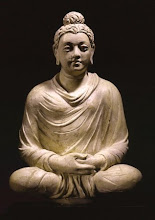
ဒုစရိုက္ ၁၀-ပါးTen Unwholesome Behaviors 十大不健康行為
ဒုစရိုက္ဆိုေသာ စကားသည္ ပါဠိစကားျဖစ္သည္။
ဒု-မေကာင္းေသာ။ စရိတ-က်င့္ၾကံျပဳလုပ္ျခင္း ဟူ၍ အနက္ရသည္။
မေကာင္းေသာ ကိုယ္မႈ၊ မေကာင္းေသာ ႏႈတ္မႈ၊ မေကာင္းေသာ စိတ္မႈတို႔ကို ဒုစရိုက္ဟုေခၚသည္။
ဘုရားရွင္၏ ေဟာၾကားခ်က္အရ ဒုစရိုက္ ၁၀-ပါးရွိသည္။ ယင္းတို႔မွာ ဒုစရုိက္ ကာယကံ ၃-ပါး။ ဒုစရိုက္ ၀စီကံ ၄-ပါး။ ဒုစရုက္ မေနာကံ ၃-ပါးတို႔ ျဖစ္သည္။ ယင္းတို႔တြင္
(၁) သူ႔အသက္သတ္ျခင္း (ပါဏာတိပါတ)
(၂) ပိုင္ရွင္က ကိုယ္ႏႈတ္တို႔ျဖင့္ မေပးအပ္ေသာဥစၥာကို ခိုးယူျခင္း။ (အဒိႏၷာဒါန)
၃) ကာမဂုဏ္တို႔၌ မွားယြင္းစြာက်င့္ျခင္း။ (ကာေမသုမိစၧာစာရ)
တို႔သည္ ဒုစရိုက္ ကာယကံ ၃-ပါး ျဖစ္သည္။ ယင္းတို႔ကို အမ်ားသူငါ အားလံုးလိုလိုပင္ သိရိွၾကသည္။
သို႔ရာတြင္ ဒုစရိုက္ ၀စီကံ ၄-ပါးကိုကား အသိနည္းၾကေပသည္။ ဒုစရိုက္ ၀စီကံ ၄-ပါးမွာ-
(၁) မဟုတ္မမွန္ ေျပာဆိုျခင္း။ (မုသာ၀ါဒ)
(၂) ကုန္းတိုက္စကား ေျပာဆိုျခင္း။ ခ်စ္သူႏွစ္ဦး ကြဲကြာသြားေအာင္ ရန္တိုက္ေပးျခင္း။ (ပိသုဏ၀ါစာ)
(၃) ဆဲေရးတိုင္းထြာျခင္း စေသာ ၾကမ္းတမ္းေသာစကား ေျပာဆိုျခင္း။(ဖရုသ၀ါစာ)
(၄) အက်ိဳးမရွိ အႏွစ္မဲ့ေသာ စကားကို ေျပာဆိုျခင္း။ (သမၨပၸလာပ) တို႔ ျဖစ္သည္။
ဒုစရိုက္ မေနာကံ ၃-ပါးကိုလည္း အသိနည္းၾကေပသည္။ ယင္းတို႔မွာ-
(၁) သူတပါးပစၥည္းကို ငါ့ဟာ ျဖစ္လွ်င္ ေကာင္းေလစြ-ဟု မတရားၾကံစည္ျခင္း။ (အဘိဇၩာ)
(၂) သူတပါးကို ေသေက်ပ်က္စီးေစလိုျခင္း။ (ဗ်ာပါဒ)
(၃) အယူမွားျခင္း။ (မိစၧာဒိ႒ိ) တို႔ျဖစ္သည္။
ဤေနရာ၌ အယူမွားျခင္းဆိုသည္မွာ ကံ-ကံ၏ အက်ိဳးကို မယံုၾကည္ျခင္း ျဖစ္သည္။
တနည္းအားျဖင့္-ေကာင္းမႈလုပ္လွ်င္ ေကာင္းက်ိဳးရသည္။ မေကာင္းမႈလုပ္လွ်င္ မေကာင္းက်ိဳးရသည္-ဟု မယံုၾကည္ျခင္း။
ေကာင္းမႈလုပ္လည္း ေကာင္းမႈမျဖစ္၊ မေကာင္းမႈလုပ္လည္း မေကာင္းမႈ မျဖစ္-ဟူေသာ အယူမွားျခင္းမ်ိဳး ျဖစ္သည္။
ဤဒုစရိုက္ ၁၀-ပါးသည္ အျပစ္ႀကီးလွသည္။ အပါယ္သို႔ ေရာက္ေစတတ္ေသာ လမ္းခရီးျဖစ္ေသာေၾကာင့္ အကုသလကမၼပထ-ဟုလည္း ေခၚသည္။
ဤဒုစရိုက္ ၁၀-မ်ိဳး အကုသိုလ္အမ်ိဳးမ်ိဳးတို႔တြင္ မိစၧာဒိ႒ိ ဒုစရိုက္ျဖစ္ေသာ ကံ-ကံ၏ အက်ိဳးကို မယံုၾကည္မႈသည္ အျပစ္အႀကီးေလးဆံုး ျဖစ္ေၾကာင္း ဗုဒၶဘုရားရွင္ ေဟာေတာ္မူခဲ့သည္။ မိစၧာအယူအစြဲသန္လွ်င္ သန္သေလာက္၊ အယူသည္းလွ်င္ သည္းသေလာက္ ေသျပီးေနာက္ ငရဲသို႔ ေတာက္ေလွ်ာက္ က်ေရာက္ခံရေၾကာင္း၊ ကမၻာပ်က္၍ သတၱ၀ါမ်ား ျဗဟၼာဘံုသို႔ ေျပာင္းေရႊ႔ၾကေသာ္လည္း မိစၧာဒိ႒ိငရဲသားမွာ ေျပာင္းခြင့္မရ။ ဆက္၍ ငရဲ၌ ခံေနရေၾကာင္း က်မ္းဂန္တို႔၌ အတိအလင္း မိန္႔ဆိုထားသည္။
Ten Unwholesome Behaviors
du - unwholesome + carita - behavior = ducarita - unwholesome behaviors
Three Unwholesome Behaviors Committed by Bodily Action (Ducarita Kāya-kamma)
1. pāṇātipāta - killing another living being.
2. adinnādana - stealing, taking someone else's belongings without their permission.
3. kāmesu micchācāra - sexual misconduct, engaging unabashedly in sexual relations to the point of being blameworthy.
Four Unwholesome Behaviors Committed by Verbal Action (Ducarita Vacī-kamma)
4. musāvāda - speaking lies, saying what is not true.
5. pisuṇavācā - slandering (saying words that will divide two people who love each other and/or influence one or the other to get them to like you better than they like each other).
6. pharusavācā - speaking harshly or swearing.
7. samphappalāpa - talking frivolously or vainly (speaking words that have neither essence nor underlying deep meanings that are true and correct).
Three Unwholesome Behaviors Committed by Mental Action (Ducarita Mano-kamma)
8. abhijjhā - covetousness, jealousy, thinking that it would be great to have something that belongs to someone else and scheming to get it in an unwholesome manner. (It is not abhijjhā if you ask for it, borrow it, or buy it from the person to whom it belongs.)
9. byāpāda - ill will, thinking that it would be great if someone died, became injured or destroyed.
10. micchādiṭṭhi - wrong view (not believing in Kamma and its results, i.e. that wholesome deeds cause wholesome results and unwholesome deeds cause unwholesome results.)
du 杜 -不健康+ carita凱伊黛 -行為= ducarita -不健康的行為
三所犯的身體不健康的行為採取行動(Ducarita克耶邦,業力 )
1. pāṇātipāta - 殺死另一個生命。
2. adinnādana - 偷竊,以別人的財物未經其許可。
3. kāmesu micchācāra -性行為不端,公然從事性關係,這一點被責備。
四不健康的行為所犯的言語行為(Ducarita的Vaci,業力 )
4. musāvāda - 講的謊言,說什麼是不正確的。
5. pisuṇavācā - 誹謗(說的話,將分兩個人誰愛對方和/或影響一個或另一個讓他們比他們更喜歡你喜歡對方)。
6. pharusavācā - 嚴厲地或講髒話。
7. samphappalāpa -談輕率或妄想(說的話有沒有本質,也不是潛在的深層含義是真實和正確的)。
三不健康的行為所犯的心理活動(Ducarita馬諾,業力 )
8. abhijjhā - 貪婪,嫉妒,認為這將是巨大的,有一些屬於別人,圖謀把它在一個不健康的方式。(這不是abhijjhā如果你問它,借,或買它的人從她所屬。)
9. byāpāda - 不懷好意,認為這將是巨大的,如果有人死亡,受傷或成為破壞。
10. micchādiṭṭhi - 錯誤的觀點(不相信的業力 ,其結果,即該行為造成健康有益成果,不健康的行為導致不健康的結果。)

